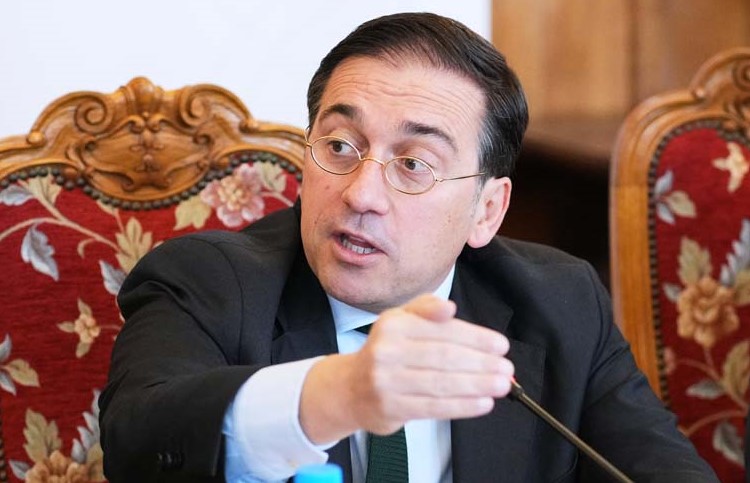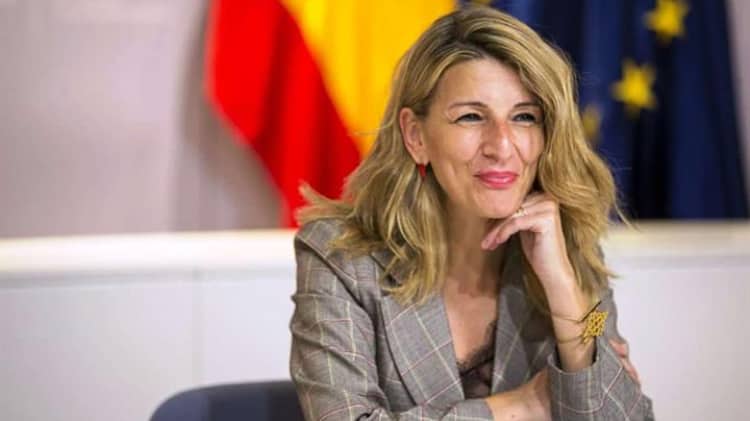The Diplomat
The Minister of Foreign Affairs, José Manuel Albares, warned yesterday that the Russian invasion in Ukraine could represent the “birth” of a “new world order” in which war becomes again the “most normal” way to solve conflicts between European states.
Albares made these warnings during the inauguration of the summer course The world after the war in Ukraine, organized by the Menéndez Pelayo International University (UIMP) and the Elcano Royal Institute at the Palacio de la Magdalena and attended by José Juan Ruiz, director of the course and president of the Elcano Royal Institute, and Ignacio Molina, a researcher at this think tank.
War has been “historically, for centuries and until very recently”, the “most normal” way to resolve conflicts between European states, and after the “illegal invasion” of Russia in Ukraine, there is “the threat that someone could return to that order”, said Albares during the event. For this reason, he warned, the conflict in Ukraine – in which “everything points” to the fact that it “still has a long way to go” – could represent the “birth” of a “new world order” after “the greatest decades of peace and prosperity”, something that should not happen under “any circumstances”.
In this context, he affirmed, although Spain cannot decide the circumstances that are imposed outside its borders, it can decide what its attitude towards them is. “The first dimension of foreign policy in Spain is and will always be Europe,” the minister declared, especially in a scenario like the current one, in which “some states consider that everything can be a weapon” -for example, energy supply or the food crisis- and in which governments cannot address the challenges alone.
“To speak of Europe is to speak of its Atlantic dimensions, and this has been made clear at the Madrid Summit, from which a more European NATO and an EU that looks more to the Atlantic have emerged”, continued Albares, for whom the crisis in Ukraine has contributed to relaunching relations between the EU and the United States, so that “at the moment, there is a closeness and a closeness that we have not had for many decades”.
In any case, he warned, the Euro-Atlantic relationship must go beyond the relationship between the European Union and the United States and seek mutual benefit with Latin America, because “we cannot allow the voice of Ibero-America to be absent from these debates” and because it is necessary to strengthen relations between Europe and Latin America, a subcontinent “that has been turned away on numerous occasions, which cannot happen again”.
Regarding the recent death of more than twenty people during an assault on the Melilla fence, “a human tragedy that touches everyone”, Albares asked to wait for the conclusion of the investigations opened both in Morocco and Spain to draw conclusions. “You will never find me on the side of those who attribute responsibilities without knowing exactly what happened,” he assured.







